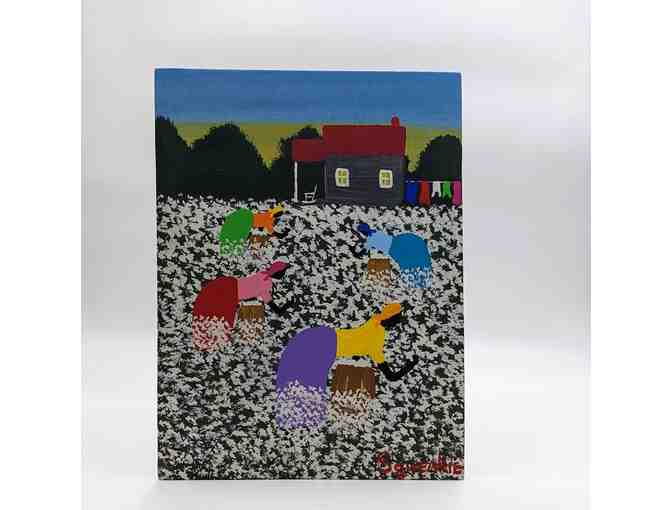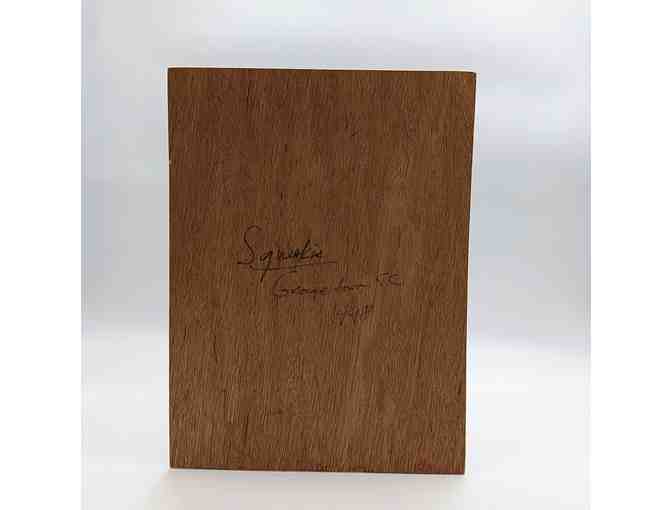John 'Squeakie' Stone Cotton Picking Painting

Item Number: 213
Time Left: CLOSED

Description
Acrylic on board, 12" x 16" Squeakie paints constantly, producing a huge collection over the years. His subject matter includes naïve paintings of barns, log cabins, farm buildings and houses; animals and birds; cotton pickers, tobacco croppers, flower pickers, sweetgrass cutters, cooks in the kitchen, ladies hanging out the weekÂs washing. He paints seascapes and boats, children and moms. Often, while sitting in the sweltering South Carolina heat, he will paint his usual buildings covered with snow in a perfect winter scene; he has never seen deep snow except in pictures.
Special Instructions
SQUEAKIE James Stone has been called "Squeakie" for as long as he can remember. He was born in Georgetown County, South Carolina, in 1951. When he was growing up, the family moved every few years or so because his father was a sharecropper and carpenter, and they moved where the work was. Squeakie started work at "handing tobacco" (passing the leaves on to a worker who strung it for drying) when he was just five or six years old. As he got older, he was involved in all aspects of the operation, from pulling plants, setting tobacco, hoeing, cropping. And he picked cotton. He worked in a few factories and grocery stores over the years, and began working as a house painter about thirty years ago. His Uncle Henry "Squirrel" had been painting folk art for nearly twenty years, when he suggested to Squeakie that he try his hand at painting a picture of a church from a photograph, which was for a woman who commissioned it. Squeakie always felt there was something else that he was meant to be doing, but had never worked out what it was until that day. When he painted that first picture, he knew this was it. That day, in 2002, he became a folk artist, although he admits now that he didn't know what he was doing back then. And, as his work progresses, new elements of Impressionism are evident.